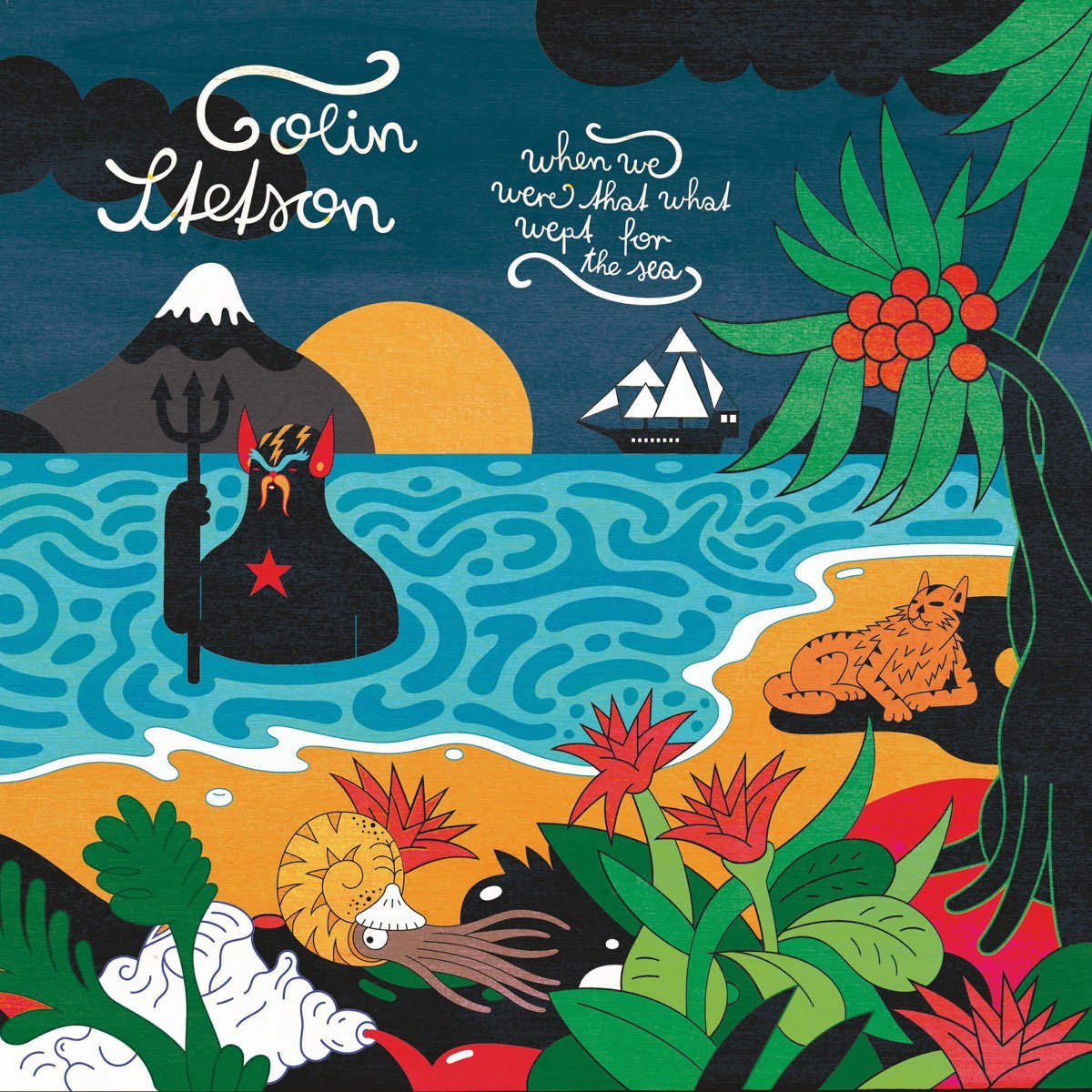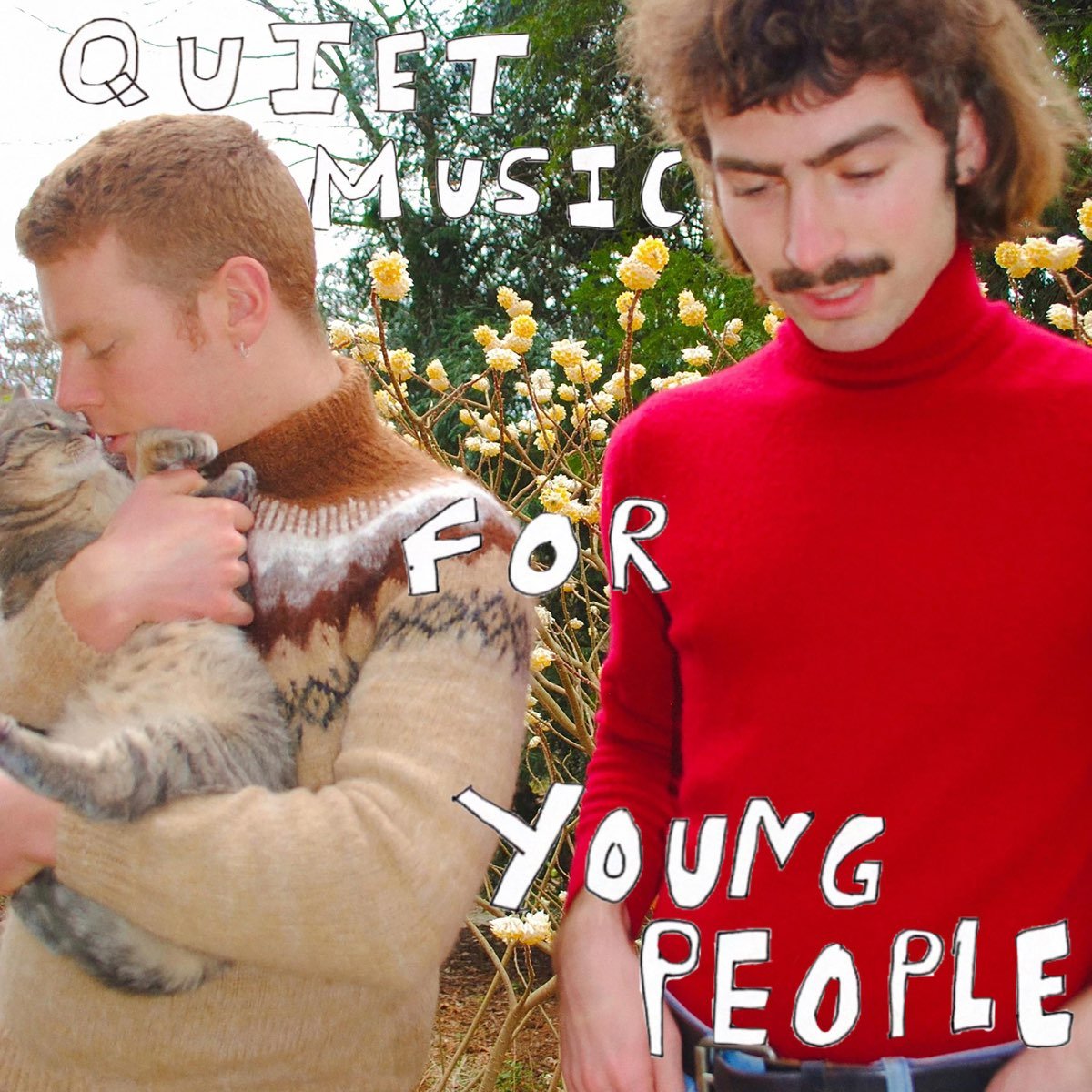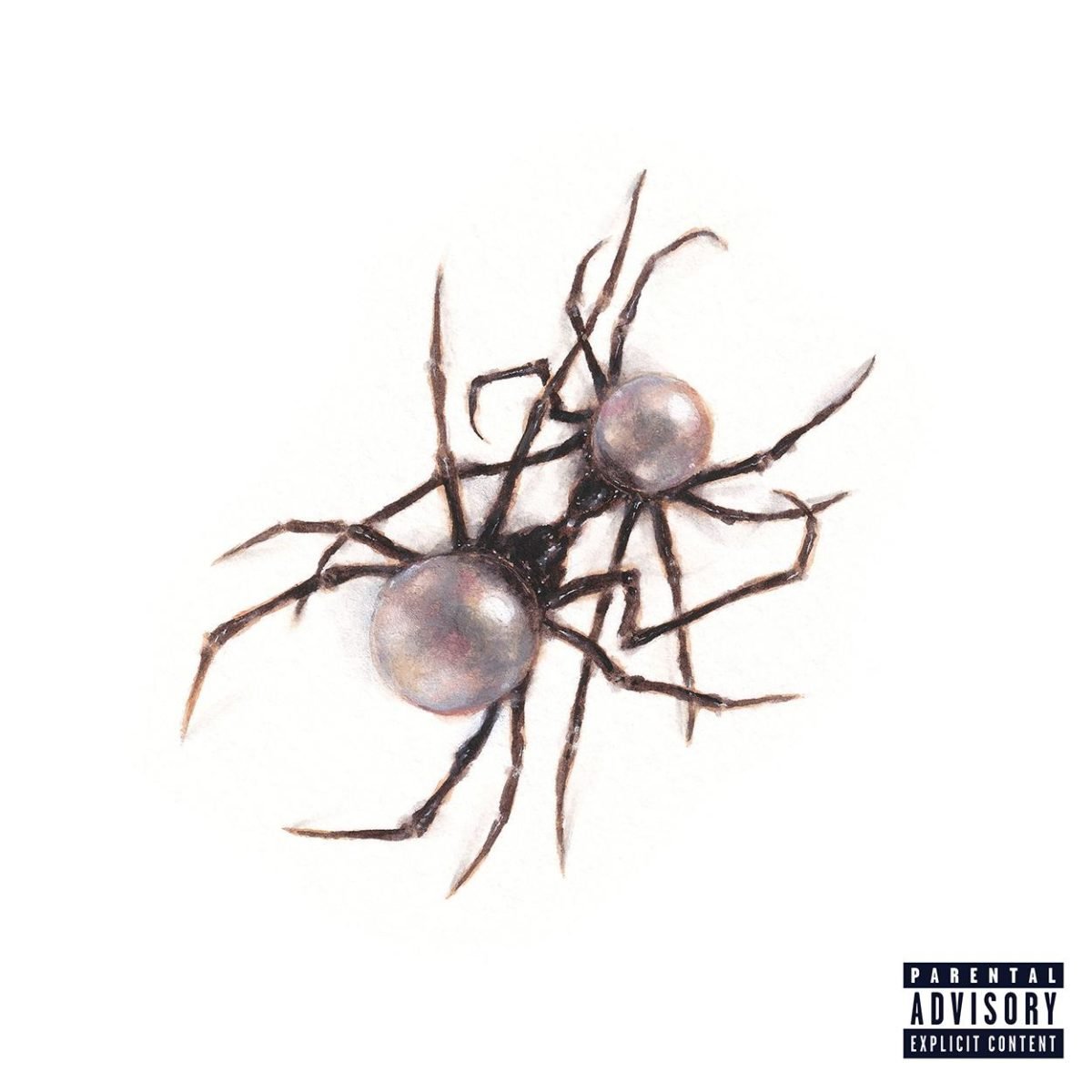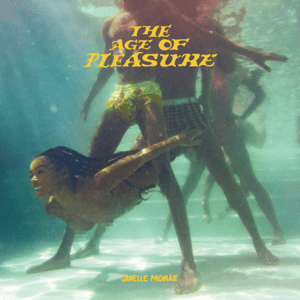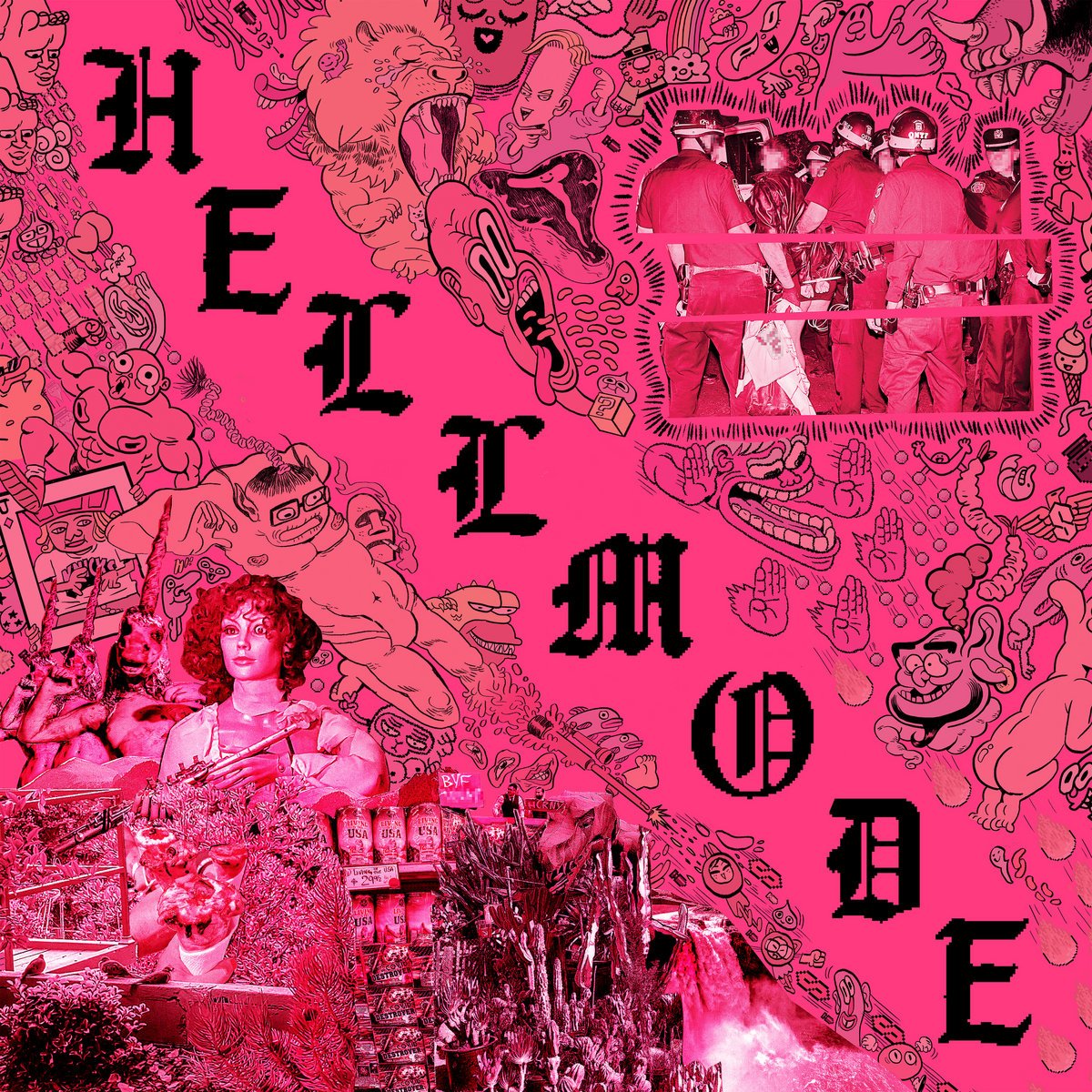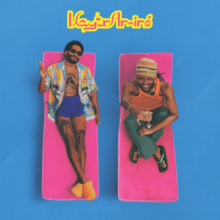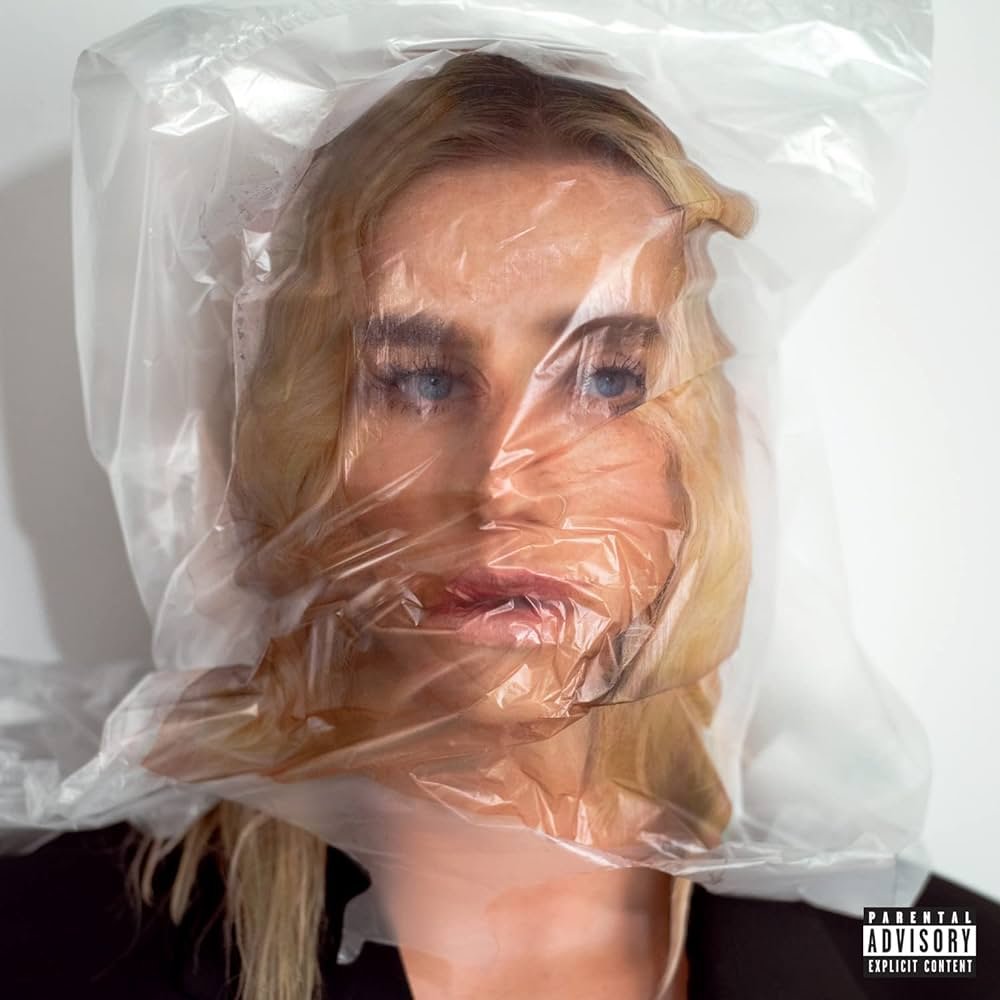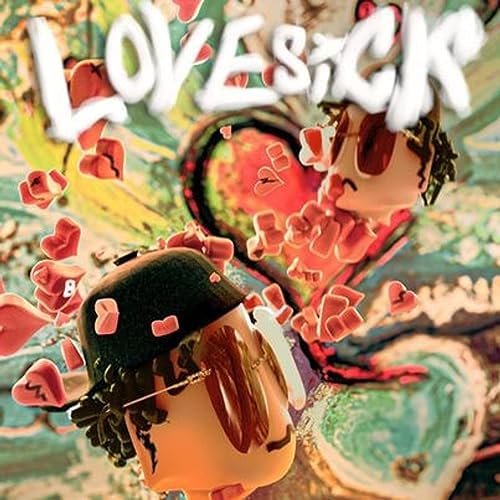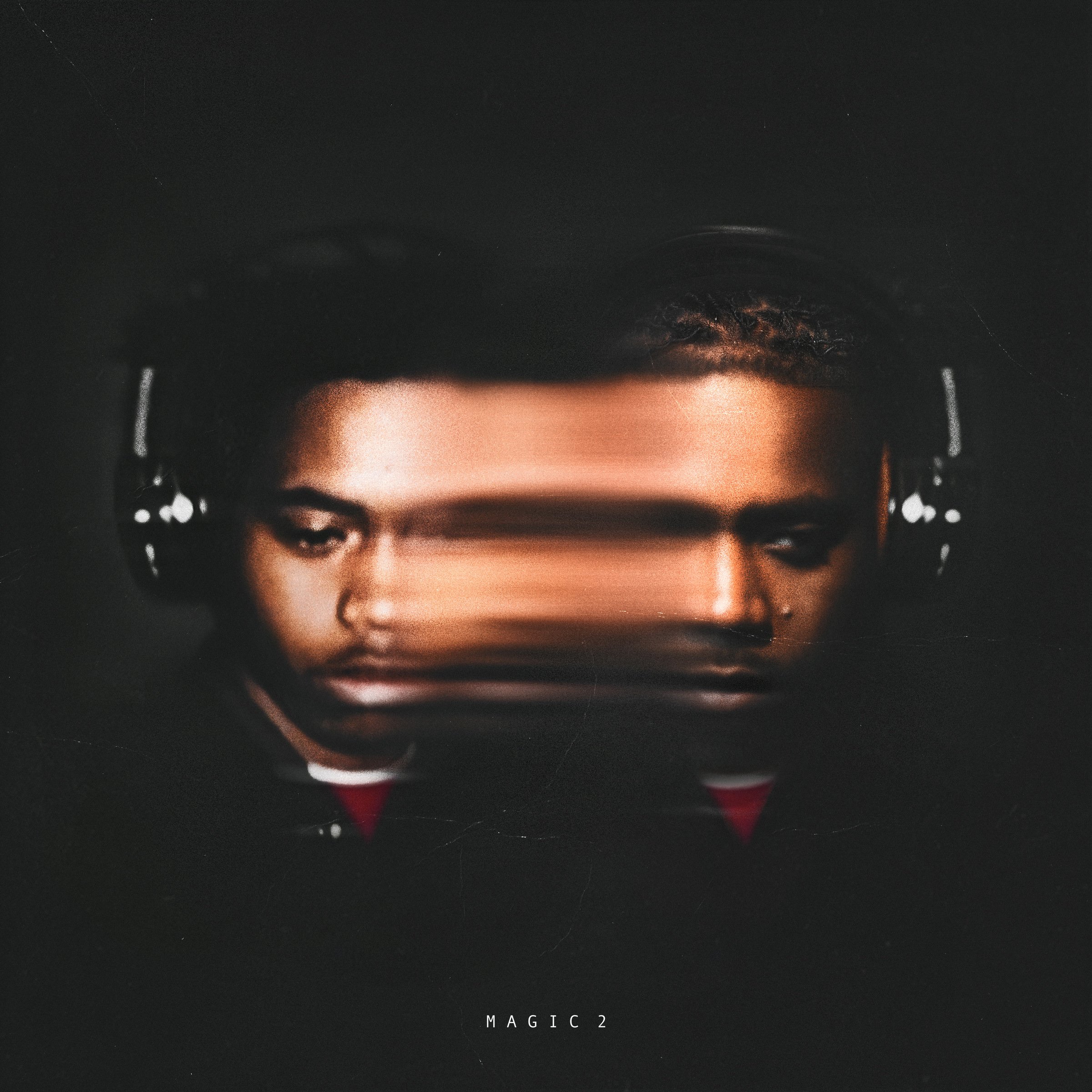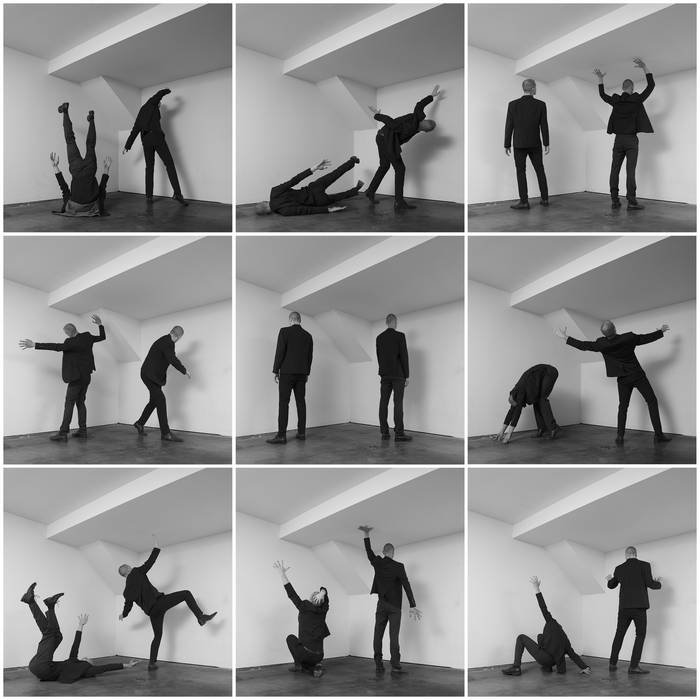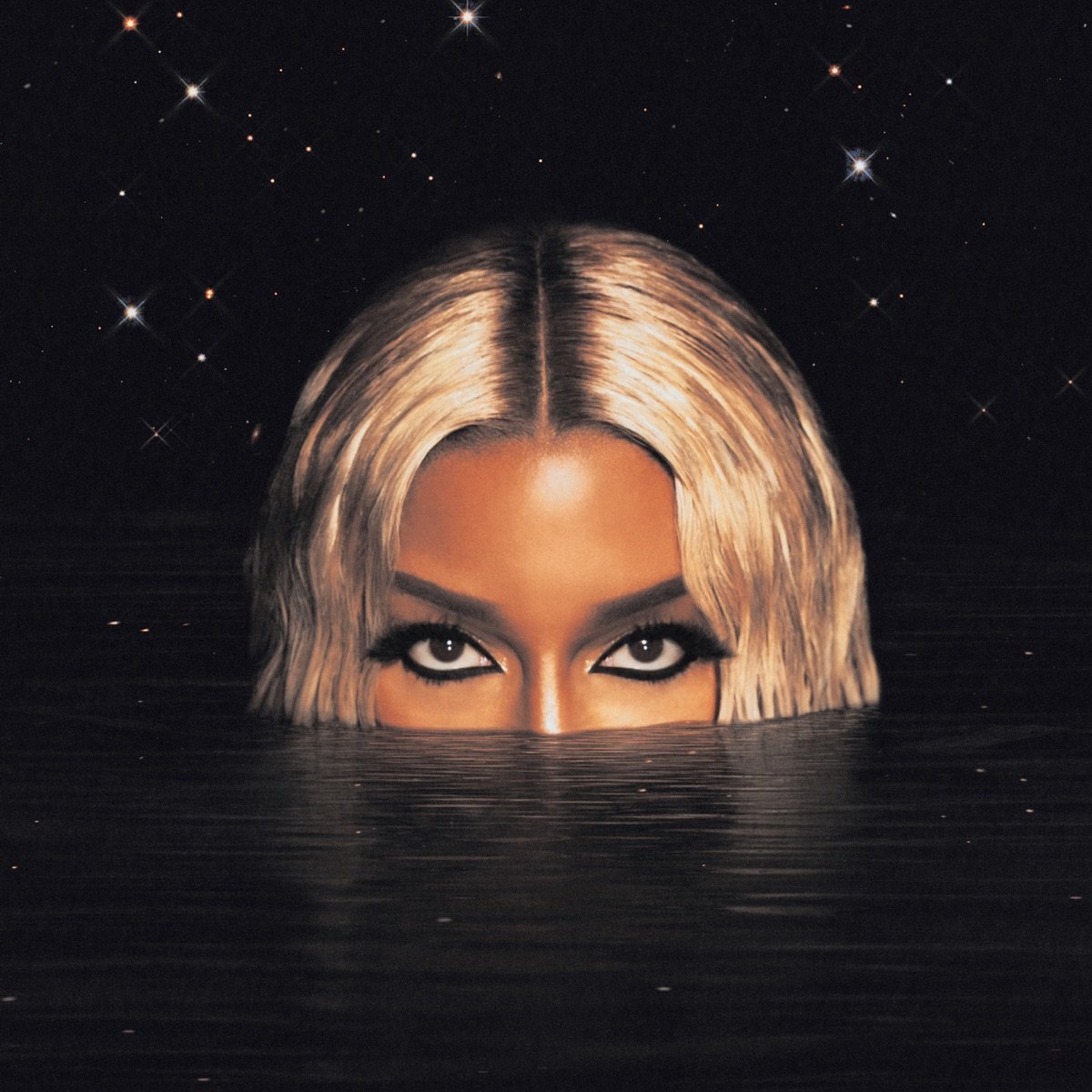Summer in Review 2023
Before you ask: yes, we can do a summer albums retrospective in the middle of the fall. We do what we want here at Aural Wes. It’s a good thing, because our writers old and new have plenty to share about the 21 releases we’re covering this year! Use the below gallery to navigate, or scroll down if you’d like to go full-send.
Aphex Twin — Blackbox Life Recorder 21f / in a room7 F760
Review by Bennett Gottesman
From a cynical viewpoint Aphex Twin’s Blackbox Life Recorder 21f / in a room7 F760 almost feels like fanservice. It’s hardly a progression for Richard D. James, often feeling like it would fit in comfortably among classics like those on Richard D. James Album. However, I love Aphex Twin’s older work and even if it’s not something wild or new, I really enjoy this EP. It’s just so infectious. The drums are as skittery as ever while somehow still feeling danceable. The synth melodies are ethereal but never abstract. Emotionally, they’re not as simple as some of Aphex Twin’s older material. They contain a sort of hidden darkness to them. This is I think best represented in my favorite track: “in a room7 F760”. The real triumph here is the pacing and structure. We start with the basics. If you can imagine an Aphex Twin type beat, that’s what you’ll find here. Slowly it builds and coalesces until in a moment of release, the synths are set loose. As the song progresses, James expertly lays the more ethereal moments in contrast to those that are more percussive. To some, this EP may feel unnecessary. It doesn’t really stand out in his discography. I doubt it will be remembered especially well down the line. I think that’s alright though. To me, these tracks present an Aphex Twin in full form. They aren’t a regression to the old. This EP is simply a demonstration of his mastery over the form.
Carly Rae Jepsen — The Loveliest Time
Review by Elijah Davis
Canadian pop singer Carly Rae Jepsen has long been hailed for her stellar songwriting. From her mega hit “Call Me Maybe” to her cult classic “Emotion”, Carly has built up a devoted fan base who love her brand of pop. The Loveliest Time is Carly’s follow up to her 2022 album The Loneliest Time, breaking from her tradition of releasing “Side B” albums as follow ups to her main releases. Even so, many expected The Loveliest Time to feel like nothing but outtakes. But it’s so much more than that. Carly manages to innovate while still keeping her pristine pop style. From opener “Anything to Be With You”, with its attention grabbing hook of “never over!,” I knew I was in for a good time. The Loveliest Time ranges from bops like “Shadow” or “Kollage” that somehow make me bob my head and contemplate myself at the same time, and high energy pop bangers like “Psychedelic Switch” or “Kamikaze” that practically scream at me to get up and start belting the lyrics and dancing. Carly Rae Jepsen truly embodies pop perfection.
Colin Stetson — When we were that what wept for the sea
Review by Bennett Gottesman
Colin Stetson’s album When we were that what wept for the sea feels unlike anything you’ll hear all year. The album is incredibly repetitive. I’d recommend that one listens to the first two songs and makes a judgment call from there. The major components are Stetson’s horn playing as well as various, mostly vocal and synth based, harmonies to fill out the mix. The primary technique used is circular breathing. This allows Stetson’s melodies to sort of modulate endlessly. The most obvious comparison I would draw is to something like Steve Reich’s Different Trains. While this album lacks the vocal presence that Different Trains has, it follows a similarly bright and repetitive pattern. Both albums/pieces use repetition to create a feeling of progression. However, the moments where Stetson’s horn is absent are quite different. They’re less rhythmic, punchy, and energetic. This is not to their detriment. “The Lighthouse II”, one of the slower cuts on the album, for example, is absolutely gorgeous. I like to imagine that this moment represents a certain stillness. In a way, the album sounds like the sea. It’s energetic and wily but still able to be calm. It’s wild and vivacious but still stately and respectful.
Elsewhere, there are spoken word pieces and a few singing performances. Everything on this album is gorgeous and contains a sort of majesty. One of my favorite songs is “Wrathful seas quiesce.” Aside from being perfectly titled, the synthesized vocals mixed with Stetson’s saxophone create this light yet solid feeling. It’s not quite joy. It’s still serious. It’s not just hopeful. It feels grounded in the bitter earth. It’s beautiful. I suppose that’s the important thing.
It’s the complexly emotional nature of the album that makes me love it so much. That is what I consider to be Stetson’s real triumph here. When we were that what wept for the sea is deeply attuned to its emotional landscape. Stetson expertly forges genuine and unique vibes that have kept me returning time after time. I recommend you listen, partially because the music is great, but mostly because of the emotional journey it has brought me on.
Dana and Alden — Quiet Music for Young People
Review by Nathan Hausspiegel
When Dana and Alden’s debut album came out, I was expecting it to be somewhat of a beat-tape, full of short, sweet, and not-too-serious instrumental excursions by the pair of brothers, who right now are probably most well-known for their TikTok account @gucci_pineapple where they do live-band covers of trendy songs, among other things. Its title, Quiet Music for Young People, suggests that the style they’re aiming for here is one along the lines of how a lot of young people today consume music, via quiet lo-fi instrumentals, unending algorithmic playlists, and songs heard in passing made by obscure artists you’ve never heard of before and never will again. The project definitely lived up to my assumption—but I wasn’t really expecting it to also be one of my favorite albums to come out this year.
The most notable thing about the album to me is just how much it celebrates influences from world music. Alden’s a student at Berklee right now, and clearly he’s been paying attention in music history class. Sure, there are some tracks like “July 98” and “Bowl Cut” that are basically just Dilla-esque hip-hop beats—and really good ones, mind you—played with a live band instead of being programmed, but other cuts from the album are dripping with inspiration from many different traditions of groove.
“Umi Goes to the Garden” is a clear homage to the delayed drums, laid-back feel, and vintage synths of reggae and dub. The sweet, sappy track “When We Met” took a couple listens to grow on me, but I found its deceptively simple melodies really charming, and reminded me of other jazz tracks that take a similar approach like “Tezeta (Nostalgia)” by Mulatu Astatke, and from more recently, “SMiLE” by DOMi & JD BECK. “It Moves Like A Snake” is a fast-paced jam which is to me clearly influenced by Khruangbin, most notably their more upbeat tracks like “People Everywhere (Still Alive)”, “So We Won’t Forget”, and “Time (You and I)”, but Dana and Alden just as well could have taken inspiration straight from the Thai and Middle-Eastern funk traditions that Khruangbin draw from so often. My favorite song on the album, Baja (featuring vocalist Cinya Khan), is 100% bossa nova straight to the dome, with a couple of lush, glittering breaks in the instrumental that remind me of something a funk band like Cortex would do.
Despite the depth of their influences, there are some silly moments that remind you that Dana and Alden are just a couple of brothers slightly older than whoever is probably reading this, fooling around and still finding their sound. Alden sings on two tracks – on the food-reference-laden “Let’s Go To Trader Joe’s” and on the goofy MIDI-instrument-backed ballad “Fried Banana Girl” – and his characteristically nasal vocal style is, at best, disarming (if not distracting), and gives you a glimpse into the personality behind the music. All in all, though, I love the album, and I’d recommend it to any young people who like chill beats, groovy instrumentals, or are obsessed with their Discover Weekly playlist.
Doja Cat — Scarlet
Review by Nolan Lewis
One thing about Doja Cat, new sounds from her are always worth the wait. Hell (no pun intended), she almost didn’t make it to the list with a release on the literal last day of summer. But, fresh off the heels of varying levels of controversy, she’s returning with a bold statement—Doja Cat is bringing back rap. And with “Paint The Town Red” being the first rap song to top the charts in over a year following her idol Nicki Minaj’s “Super Freaky Girl”, as well as the album itself peaking at fourth place on the Hot 200, it seems that there’s some validity to her claim. Even with a track like “Demons” whose rather simplistic bars are saved by the production (and second verse if you’re willing to argue), the rest of Scarlet takes us back to Doja’s SoundCloud pop-rap roots with goofy yet hard-hitting bars and melodies that can stay afloat (and furthermore, rise to the top) among the sounds of the 2020s. But beyond the heavy 808s, what stands out is the stripped back three-track love letter (“Agora Hills”, “Can’t Wait”, and “Often”) to her current boyfriend which, knowing him, initially makes you cringe before accepting just how beautiful the triplets sound. Very Aaliyah, “Age Ain’t Nothing But A Number”. Focusing on production though, this time around Doja didn’t touch an instrument or keyboard, instead channeling her energy for showing off her lyrical prowess, the culmination of which makes her initially attention-grabbing lead single of the same name take a backseat. But what might be the most shocking of all is the normally freestyle-averse Doja finishing off the album strong with “WYM Freestyle”, ending by highlighting what she does best: “step on toes”.
Favorite Track: Tie between “Often” and “WYM Freestyle”
Janelle Monáe — The Age of Pleasure
Review by Nolan Lewis
Talk about a rebrand. Our once “Electric Lady” has swapped out their black-and-white suit for the birthday variety, with the polarizing release of The Age of Pleasure. A sonically arousing ode to hedonism, Monáe places listeners directly on the shore of a Caribbean beach, champagne bottle at the ready for whoever can shake their ass the fastest. While the features don’t necessarily add anything major to the project (namely Doechii’s disappointing lines on “Phenomenal” and the use of Grace Jones as a speaking interlude rather than a vocalist), and some tracks could be longer, the Solange-esque production value and transitions certainly make up for it. Boasting themes of Black Queer self-love with a heavy sprinkle of masturbation motifs infused with afrobeats, I think it’s safe to say that nobody expected this from Janelle Monáe—but we’re blessed to have received it. Oh, and they were first to mention feeling “The Rush”, sorry Troye Sivan.
Favorite Track: “Water Slide”
Jeff Rosenstock — HELLMODE
Review by Elijah Davis
HELLMODE is punk legend Jeff Rosenstock’s first album of original work since 2020’s NO DREAM, and my personal excitement surrounding this album was over the moon since the moment it was announced. NO DREAM was my introduction into the world of Jeff Rosenstock’s high-energy flavor of pop punk, and it ended up being one of my favorite albums of 2020. I was hoping HELLMODE would captivate me the same way NO DREAM did, and I’m glad to say I love every second of it. Jeff takes a more introspective approach in the writing of the album, leading to songs like “DOUBT”, a slow buildup leading to an anthemic message, shouting “kill all the doubt or it’ll never go away”, or a song like “HEALMODE”, a lovely slow song about lazy days. On the other hand, Jeff’s high energy songwriting shines in tracks like “I WANNA BE WRONG” or “HEAD”, which are brimming with raging guitar lines. HELLMODE is a worthy follow up to NO DREAM, and another amazing addition to Jeff Rosenstock’s stellar discography.
KAYTRAMINÉ — KAYTRAMINÉ
Review by Nolan Lewis
Even if they dropped the same day as me, I found it in my heart to forgive them after listening to KAYTRAMINÉ’s big debut. Being a long-time fan of both artists separately, I was caught off-guard in the best way possible when the two announced their collaborative project via the release of “4EVA” with industry veteran Pharrell Williams. Admittedly, I was expecting a similar sound on the album upon hearing the lead single, but KAYTRANADA proves that his simplistic and iconic production style is not monolithic whatsoever. Over the eleven tracks, which are chock-full of impressive features (Freddie Gibbs, Big Sean, Amaarae, Snoop Dogg), KAYTRANADA's house-rap-funk-fusion and Aminé’s hard-hitting, raunchy punchlines mix together as seamlessly as the duo’s namesake. KAYTRAMINÉ represents the ultimate college-age bromance soundtrack, tequila sunrise in hand. And to anyone who believes otherwise, “that’s the type of feeling I rebuke”.
Favorite Track: “Sossaup” (feat. Amaarae)
Kesha — Gag Order
Review by Cassandra Weigle
Gag Order, a title inspired by the legal war between early 2010s pop icon Kesha and the owner of her label (and alleged sexual assailant) Dr. Luke, demonstrates a newfound maturity for Kesha as she enters her late 30s. The production, overseen by Rick Rubin, is generally mellow and spacey, giving her elegant vocal layers room to breathe, but song structures are often fluid and unpredictable. This is most apparent on highlights like “Only Love Can Save Us Now,” which alternates between what is almost a reversion to her early 2010s style (with a bit more of a post-ironic hyperpop twist) and a full gospel number, repeating the title in such an animated and exciting way that the segment instantly becomes the high point of the entire record. Other standouts come by when Kesha experiments the most with song structures, such as the outro of “The Drama” where her vocals cycle in a round, chirping about how “In the next life, I wanna come back, as a house cat, as a house cat” over a lonely bass synth while a more filtered vocal lead layered over everything begs to be sedated over and over. The voice asking to be sedated is particularly harrowing considering the accusations claim Luke assaulted her after drugging her. Regardless, over the course of the album Kesha works to overcome the trauma of her situation and comes out the other side stronger for it. While the last few tracks aren’t particularly conceptually striking, they seem to represent her learning to accept her situation for what it is and find solace in that, and for that I am happy for her. About a month after the album’s release, it was announced that the case was being settled out of court, and going forward Kesha will finally leave this era of her life in the past.
King Krule — Space Heavy
Review by Nathan Hausspiegel
Although this album came out during the summer, it’s definitely one of the least summery things I’ve listened to recently. This was my first King Krule album, and I’m a fan now… I think. Space Heavy to me feels like spending a day at home sick in bed — it can be very cozy and warm at times, but the entire experience is shrouded in malaise and sadness. That shouldn’t discourage you from listening to it, though: I’ve found it’s been good at meeting me where I am on a depressed, moody day. I would almost recommend listening to it swaddled in a blanket while it’s raining outside rather than somewhere out in the world while the sun is shining.
It’s hard for me to pick favorite moments from the project because the whole thing is so self-reflective. Tracks and musical motifs bleed and blend into one another, song titles share names and themes, and King Krule sings the words “space” and “heavy” more times than I can count. It feels more like a tight self-contained bundle of emotion rather than a playlist that you can just tease the best parts out of. Even still, I have my list of highlights: “Flimsier”, the opening track, was what got me hooked on the album initially, a slow ballad with a really beautiful and memorable guitar melody that’s later reprised on “Our Vacuum”. “Hamburgerphobia” skews manic and anxious, with skittering drums backing grimy lyrics about hamburger grease and mildew. The title track starts reserved and quiet, but slowly builds into an explosion of overdriven guitars and screaming, contorted vocals. “If Only It Was Warmth” kind of epitomizes the feeling this album gives me: King Krule sings about his disappointment in his lover, but instead of the track seeming bitter, the warm, slow backing instrumental instead makes the whole thing convey an atmosphere of comfortable depression — an acquiescence that things can and should be better, but that it’s not worth pretending that they are.
Is all of King Krule’s music like this? I still don’t know. I was told I should listen to some other albums of his before writing this, but I haven’t. It’s partially that I’ve been too busy… and partially that I’m scared of getting more depressed by his other music… but I think mostly, I’m just not done listening to this one yet. Space Heavy is really gripping and compelling, and like a comfortable, warm blanket, it can be hard to leave behind.
Lil Shine — LOVESICK
Review by Cassandra Weigle
LOVESICK largely sticks to the heavenly sporadic PluggnB style Shine came into on his 2022 album “Losing Myself,” featuring highlights such as “Mistakes,” the title track, and “Worthless,” each tapping into a bit more of a melancholic sound than Shine’s preceding project. Despite those highlights, LOVESICK is generally at a slightly lower standard of quality than that project, and given that it's generally a rehashing of the last project’s sound, some songs on this feel somewhat redundant, though they certainly do add to the catalog of songs in Shine’s unique style. Notably, though, that marginal quality dip is with the exception of one song in particular, the longest in the tracklist due to the minute long and borderline comically dramatic intro, that at first seems overdone and out of place until you hear the track that it leads into. “Jeans Soaked” is Shine in top form, bringing his signature style to its logical conclusion and positioning Shine as a rockstar in his own right. The lyrics aren’t particularly more substantive than his typical fare, but Shine delivers them with a passion that sells his dedication to his art, further evidenced by producer jxyy2k claiming the two “worked on this song for like 6 months.” The EP as a whole is short and sweet and undoubtedly worth your time (though for those unfamiliar with Shine they may have a more substantive time with “Losing Myself”), even if the tracklist is largely overshadowed by a crown jewel nestled in the back half that in and of itself cements Shine as one of the most talented young artists in music today.
Nas — Magic 2 / Magic 3
Review by Isaías Pagán de Jesús
It’s no secret that Nasir “Nasty Nas” Jones and Chauncey Alexander Hollis Jr., a.k.a. Hit-Boy, have been on a hot streak these past few years, so much so that we’ve decided to review their two latest efforts together. Going back to 2012 for a moment, Nas had dropped his latest album at the time, Life is Good, followed by NASIR in 2018 as part of Kanye’s fruitful “Wyoming sessions.” Both albums were received with mixed responses, and the question arose in the minds of fans and critics alike: “Does Nas still have it?”
Nas teamed up with Hit-Boy in an attempt to answer that question with the fantastic King’s Disease (2020, 2021, 2023) trilogy and Magic (2021). With KD as the duo’s apparent main focus, it became an even bigger surprise when the pair dropped Magic 2 and Magic 3 in July and September of 2023, respectively, to culminate their series of collaborations. Now, did these two albums live up to the KD trilogy and did they serve as a satisfying conclusion to their years of work? Well, they didn’t pull it off as well as they could have, but I think they comfortably made it to the finish line.
Magic 2 was the most surprising release in the series, as it was a sequel to an album that was essentially meant to tide fans over until King’s Disease III. Unfortunately, I don’t think Magic 2 did much to prove skeptics wrong in thinking that a Magic series couldn’t stand on its own, with some even thinking it was meant to tide audiences over until a KD IV. That’s not to say it was necessarily a bad album; it just didn’t feel as creative or special as KD or even the first Magic. Nas’s flows and lyricism are solid throughout, but that’s taken for granted when listening to a Nas album. Hit-Boy’s production doesn’t disappoint though, and the stronger emphasis on the “magic” theme of the album was a nice touch.
In terms of its individual tracks, there weren’t crazy highs or lows, but I have to mention the disappointing “Office Hours” featuring the one and only 50 Cent. Going into the album, I was cautiously optimistic for the 50 and Nas collaboration. Nas enters with an energetic flow over a pretty captivating Hit-Boy beat. Where it falls apart is, unfortunately, the 50 Cent feature - the main draw to the track. He barely makes his way through 25 seconds of a verse (I counted) through what sounds like gritted teeth and an awkwardly choppy flow. He then moves into a series of ad libs that are admittedly fun to listen to, but is it worth the lack of a good verse? Not at all. Apart from this and some boring hooks on “Motion” and “Slow it Down,” the album isn’t bad. It’s mostly things we’ve heard Nas doing before: reminiscing on his past and flexing his status and longevity in hip-hop. He does it well, though, and I really don’t get tired of hearing him drop comfortable quality. Standouts include the great opener “Abracadabra,” “Black Magic,” “Earvin Magic Johnson,” and “What This All Really Means.” Hearing 21 Savage and Nas trade verses pretty cohesively over one of Hit-Boy’s classic/modern hybrid beats on “One Mic, One Gun” is also fun.
Magic 3 was the follow-up to Magic 2 and provided a much more substantial album experience. I need to give it a couple more listens before I can fully appreciate the lyrical display but its longer length gives Nas more room to flesh out the record. It’s less gimmicky than Magic 2 in terms of its “magic” theme, seeming a lot more like a direct follow-up to the first album in the trilogy. This makes me think that Magic 2 was definitely a means to stretch out Magic into a trilogy so Nas and Hit-Boy could say they made “two trilogies in three years.” While I recognize the impressive feat, I can’t help but wonder if combining the best parts of M2 and M3 into one really good album would have created a better experience. While “Speechless, Pt. 2” isn’t quite as hard-hitting as the “Speechless” from Magic, I like hearing him turn the phrase; now Nas isn’t leaving audiences speechless, he is speechless. It was fun listening to “Blue Bentley” with its sample of rap classics “Lodi Dodi” and “Ambitionz Az A Ridah” reminding me of “Wave Gods” sampling of “Nuthin’ But A ‘G’ Thang” and “Eye for a Eye (Your Beef Is Mines).”
Other standouts on the tracklist include “Fever,” with its dramatic beat that reminds me of a Spaghetti Western, flow switches, and a nostalgic sample of the Illmatic track “Represent”, “Superhero Status” which I’m choosing to believe was inspired by his inclusion on Metro Boomin’s Across the Spider-Verse soundtrack, “Never Die” with a solid feature from Lil Wayne (though I would have liked the two MC’s trading bars rather than having separate verses, I’ll take this over “Office Hours”), and “Based On True Events” parts 1 and 2 that feature the storytelling side of Nas. A track that seems to have people split is “Pretty Young Girl.” The weirdness of the track, both in its beat and the lyrics makes it a fun listen for me; I think Nas is playing this song as a joke, but his delivery is so straight that I’m not fully certain. Finally, the album isn’t short of introspective moments with cuts like “No Tears”, “Sitting With My Thoughts”, and “Japanese Soul Bar”, all over warm and spacy beats that show just how in-sync Nas and Hit-Boy can get. “Sitting With My Thoughts” is perhaps my favorite-produced song on the album, with soft soulful vocals in the background over a trap beat and icy keys that Nas absolutely kills. The album doesn’t necessarily live up to the greatness of King’s Disease 2 or 3, but you can tell it’s trying its hardest, and I think it’s the best and most versatile Magic album. While Nas certainly has better albums in his discography, he and Hit-Boy manage to land on their feet and provide another engaging listen.
The Magic – King’s Disease albums end with “1-800-Nas&Hit”, which is a track I probably won’t come back to on its own, but it’s a perfect “roll-credits” moment for the end of a monumental collaboration that included 6 albums, 2 trilogies, 84 songs, and team-ups with Charlie Wilson, Freddie Gibbs, Eminem, Ms. Lauryn Hill, A$AP Rocky, DJ Premier, and more, establishing Nas’s longevity and cementing him as one of the best to ever do it.
Olivia Rodrigo — GUTS
Review by Cassandra Weigle
On GUTS, Olivia Rodrigo cements herself as the pop icon of a generation, pulling from teen idol influences of decades past and congealing them into something so 2023 it almost feels like a period piece. On standouts like “pretty isn’t pretty” and “ballad of a homeschooled girl” her songwriting talents dip into her insecurities (body dysmorphia and social anxiety respectively), the writing being universal enough to resonate with all kinds of listeners but personal enough to feel real. The weeping guitars on the former paint an ethereal melancholy that drowns the listener in the all encompassing self hatred of its subject matter (while still being very catchy!) while the soaring post-chorus of the latter becomes an anthem of despair and self hatred as Olivia kicks herself for all the stupid social interactions she has, presumably as a result of being homeschooled and therefore not learning how to function in social situations in the same ways as her peers did. Other highlights include first single “vampire,” a graceful but forceful piano ballad that nails the orchestral buildups into the a capella refrain as Olivia kicks herself for being so stupid as to fall for such an obvious manipulator, songs like “lacy” where Olivia muses on the imperfections of herself in comparison to another titular girl, melding her inadequacy with subtle homoeroticism in a mind bending account of jealousy, or the cheeky “get him back!,” where Olivia tells a story of an asshole ex-lover who she still has feelings for and flip flops between wanting to “get him back” (i.e. get back together with him and be his girlfriend again) and “get him back” (i.e. get revenge for the shitty things he did to her), declaring at the end that “I’m gonna get him so good, he’s gonna love me and hate me at the same time,” seemingly oblivious to how he has clearly already done that to her to put her in this position. On moments like this throughout the record, Olivia spills her guts in 12 witty, self-deprecating, catchy, and grandiose tracks, making for one of the best mainstream pop records of the last couple years and positioning Rodrigo as the pop rock queen of Gen Z.
Origami Angel — The Brightest Days
Review by Elijah Davis
Origami Angel has been one of my favorite acts in emo ever since I heard their debut album Somewhere City. Their hooky take on midwest emo guitar riffs sounded like butter to my ears, and their lyrics, filled with expressions of sincere emotion and passion, spoke to me. Their newest project, The Brightest Days, takes everything that made me fall in love with Origami Angel and distills it into a short 22 minute mixtape (I know this is an album writeup, but I like this project too much to not write about it). The title track and opener, “The Brightest Days”, starts out acoustic, with lyrics invoking lyrics of nostalgia, before bursting out into heavier, more familiar riffs. It’s a great opener for an amazing run of songs. “Thank You New Jersey” is a humorous ode to the titular state, with lines about the indifference of New Jersey’s residents bringing you back down to earth. “Second Best Friend” is an emotional song about teenage years, and not feeling good enough for your peers. A song all too relatable to many. “Few and Far Between” brings The Brightest Days back to its beginnings, bringing back motifs from the opening track to bookend the mixtape. The Brightest Days is an amazing ride that makes great use of its short runtime. Even though the tape is less than half a year old, I’m confident I’ll be relistening to it, along with the rest of Origami Angel’s discography, for years to come.
Paris Texas — MID AIR
Review by Emmett Favreau
One of Spotify’s many AI curated playlists is called Discover Weekly, and its purpose is to create a playlist that introduces the user to new artists and songs that match their listening history. Two years ago, his playlist led to me discovering Red Hand Akimbo, an EP by alternative hip-hop duo Paris Texas. I quickly fell in love with their usage of both 808s and aggressive riffs to add a rock-like flair to their bars, which I find is most explored on the tracks “girls like drugs” and “HEAVY METAL”. Admittedly, I forgot about Paris Texas as almost two years passed before the release of their most recent project, MID AIR. However, their hiatus was clearly necessary, as MID AIR has become one of my favorite projects released this summer. The project has something for everyone. For example, “Split-Screen” and “NüWhip” are both 808-heavy songs, while “BULLET MAN” and “Everybody’s Safe Until…” fit more into the genre of alternative rock mixed with hip-hop. Even though Anthony Fantano criminally rated this project a 3/10, I think it’s worth a listen.
spill tab — KLEPTO
Review by Cassandra Weigle
KLEPTO is the third EP from Spotify editorial playlist darling spill tab, compiling the four singles released in the last year and a half of her career and supplementing them with a fifth to tie the bow on the project. Despite the clinical tone I use to describe this project, spill tab is actually one of the most talented indie artists out right now, seemingly as intolerant of a melody less sticky than double sided tape as she is of lactose (a line that probably would have hit better if her Spotify bio was still “dreamy and dairy free,” but hey, you know now). KLEPTO however, marks a new degree of experimentation for spill tab, with songs like “Window” dipping their toes into a refined sophisti-pop sound, or the utterly off the walls “CRÈME BRÛLÉE!,” diving headfirst into utter psychedelia, gluing disparate musical segments together with aforementioned undeniably sticky melodies all in the span of just 2:15 to close out the project. “Splinter” is perhaps the least adventurous for the project sonically but perhaps the most irresistible, with a soaring chorus positioned on both sides of a bouncy guitar and kick led bridge/verse that has compelled me to dance awkwardly in my room with my headphones in more times than I’d like to admit. In totality, KLEPTO is a tight but consistently amazing showing from a pop star in the making.
Sprain — The Lamb As Effigy
Review by Cassandra Weigle
Sprain’s sophomore album The Lamb as Effigy cements their full pivot into experimental rock, melding disparate and wildly off kilter styles into a masterful amalgamation of sonic self hatred and existential dread. The latter is apparent immediately upon the first lyric, “It’s about control or lack thereof,” and carries through unto the final track, the 24 minute monster of a song “God, or Whatever You Call It,” where frontman Alex Kent imagines conversations he’d have with a deity that speaks in harsh noise, concluding the record with an acapella proclamation of utter insecurity in the face of his supposed savior. The rest of the record is difficult to encapsulate, starting off with aggressive, poetic, and angry noise rock but quickly delving into synth led noise on “Privilege of Being,” congealing into a headache inducing dissonant drone before breaking out into an elegant string arrangement that closes the track. Speaking of drone, that leads directly into the other 24 minute monster of a track, “Margin of Error,” centered around a constant, heavenly drone played on an organ that breaks into existential shoegaze around the halfway point, bringing the album to its second half, where the self hatred in Alex’s lyrics becomes all the more potent, closing “The Reclining Nude” by repeating the word “idiot” to himself over and over again, telling us earlier in the song that he “just likes the way it sounds,” or perhaps the most absurd, where in the final moments of “We Think So Ill of You,” Kent compels us to “Imagine this: I’m the guest on some obscene talk show… the audience is made up of everyone that I have ever met in my entire life. Every sin I've ever committed is put up on display by screens hung around the stage. And we watch, watch, watch, watch, watch, watch, watch!” It’s such a shocking way of degrading himself that it genuinely feels absurd, but Alex sells the imagined reality with all the horror of it actually happening. The entire record sinks into an even greater feeling of utter despair and dread.
Sprain’s new full length is not one for the faint of heart and will probably destroy any sort of good mood you happen to have on the day that you choose to engage with it, but if you do, it’s a powerful and affecting listen. I know I’m probably not selling it very well, but to be perfectly honest I’m not sure if this is a record that should be sold to just anyone. If you are willing to take the dive into the world this record cultivates, it is worthwhile, even if it is utterly harrowing.
Tainy — DATA
Review by Isaías Pagán de Jesús
(This review is in Spanish. Scroll down for the English translation)
Tainy es un compositor y productor de San Juan, Puerto Rico que ha estado involucrado en el género urbano desde mediados de los años 2000. Sin embargo, su carrera ha alcanzado nuevos niveles en estos últimos cinco años tras la infusión de trap a la música urbana. Colaboraciones con J Balvin, Rosalía, Cardi B, Anuel AA, Jhayco y Bad Bunny han hecho a Tainy una parte esencial de canciones gigantes como “I Like It”, “China”, “DÁKITI”, “Callaita”, “Safaera”, y muchas más. DATA es la creación más ambiciosa de Tainy, pues presenta un conjunto de 27 artistas de pop, trap, reggaetón, y música electrónica de toda Latinoamérica y temas que mezclan estéticas desde el principio de su carrera hasta hoy día.
Al hablar de este disco, vale la pena mencionar la atmósfera y el mundo que crea, porque parece ser algo a lo que Tainy y su equipo prestaron atención particular, reflejado en la portada del álbum. La estética es influenciada por la ciencia ficción, (“FANTASMA | AVC”, “Sci-Fi”), pero hay canciones que cruzan a lo sobrenatural (de nuevo “FANTASMA | AVC”, “MOJABI GHOST”, y “PARANORMAL”). Mientras aprecio esta dirección creativa, me parece que Tainy pierde foco de estas ideas en una gran parte del álbum - la pérdida de enfoque realmente no le quita mucho a la música, pero me hubiera gustado oír un álbum de música urbana que explorara más la relación entre la tecnología y la magia. Dando un ejemplo reciente, me parece que algo como HEROES & VILLAINS de Metro Boomin hace un mejor trabajo de mantenerse alineado con un tema central.
También hay varios temas genéricos. Las pistas de Tainy usualmente son cautivadoras, pero los vocalistas me dejan queriendo más en canciones como “si preguntas por mi” en la que Kris Floyd da una actuación de reggaetón olvidable o “Sci-Fi”, que me dejo decepcionado lo básica que suena una colaboración entre Rauw Alejandro y Tainy. Mi canción menos favorita del disco es “La Baby” con Feid, Sech, y el rey del reggaetón, Daddy Yankee. Cada uno de estos tres artistas tiene talento y experiencia en el género, pero oír a Daddy Yankee cantar “La baby tiene cuarto… Llegó en guagua tinteá’... Le da duro al gimnasio.. Bailando reggaetón” es algo que he escuchado tres mil veces antes. No obstante, hay otro tema en DATA que hace un mejor trabajo creando una canción de reggaeton clásica con suficientes toques modernos para hacerla sentir fresca: “Todavía” con Wisin & Yandel, quienes llevan pegando temas desde los años 2000. Es otra canción en la que el dúo rapea y canta de perreo, pasarla bien, y sexo, pero la química entre los dos artístas y los sonidos futurístas que Tainy incorpora en la pista la hace mucho mas divertida que las otras canciones que he mencionado.
Y si tuviera que escoger una palabra para describir este disco sería esa: divertido. Muy divertido. Podría verme poniendo este álbum en shuffle (aunque las transiciones entre canciones son bastante buenas) en una fiesta o paseando por la playa. Sé que eso describe a una gran parte del género urbano, pero sí me parece que este álbum es algo especial. Momentos como “BUENOS AIRES” con Mora y Zion, “me jodi…” con Arcángel, y “EN VISTO” con Ozuna tienen pistas e interpretaciones lo suficientemente únicas y pegajosas como para hacerme sonreír. A la vez, las mejores partes del disco son cuando Tainy mezcla influencias musicales y géneros que crean una sensación similar a Remy en Ratatouille comiéndose una fresa con un queso. Esto incluye “mañana” con Young Miko y The Marías y “VOLVER” con Skrillex, Four Tet, y Rauw Alejandro. También incluye la mejor canción - y la más popular - del álbum: “Lo Siento BB:/” con Bad Bunny y la legendaria cantante de pop mexicana Julieta Venegas. Lo que es esencialmente una canción de Bad Bunny es elevada por los efectos de voz robóticos y por el intro mágico de Julieta con producción escasa antes de que entre el beat de reggaetón con las pegajosas vocales de Benito.
En fin, es un disco bastante satisfactorio de uno de los compositores más grandes del mundo. DATA tiene mucha calidad entre canciones, sonidos, e ideas que no había oído en la música urbana antes. Aunque hay ideas subdesarrolladas y temas que hacen al disco un poco más soso, estos momentos no socavan la grandeza de las mejores partes.
English translation by Isaías Pagán de Jesús
Tainy is a producer from San Juan, Puerto Rico who has been involved in música urbana since the mid-2000s. Nonetheless, his career has reached new heights in the past five years following the infusion of trap into música urbana. Collaborations with J Balvin, Rosalía, Cardi B, Anuel AA, Jhayco, and Bad Bunny have made Tainy an essential part of giant hits like “I Like It,” “China,” “Callaita”, “DÁKITI,” “Safaera,” and many more. DATA is Tainy’s most ambitious creation, as he presents a roster of 27 pop, trap, reggaetón, and electronic artists from across Latin America and songs that mix aesthetics from the beginning of his career to this day.
In talking about this record, it’s worth mentioning the atmosphere and world created, as it seems to be something that Tainy and his team paid significant attention to, reflected on the album cover. This aesthetic is influenced by science fiction (“FANTASMA | AVC”, “Sci-Fi”), but there are songs that cross into the supernatural (again, “FANTASMA | AVC”, “MOJABI GHOST”, and “PARANORMAL”). While I appreciate this creative direction, I feel as though Tainy loses focus of these ideas for a large chunk of the album - the loss of focus really doesn’t take away much from the music, but I would have liked hearing an urbana album that explored the relationship between technology and magic. Giving a recent example, I feel something like Metro Boomin’s HEROES & VILLAINS does a better job staying aligned with one central topic.
There’s also a couple generic tracks. Tainy’s beats are usually captivating, but the vocalists leave me wanting more on songs like “si preguntas por mi” in which Kris Floyd gives a forgettable reggaetón performance or “Sci-Fi” which left me disappointed with how basic a collaboration between Rauw Alejandro and Tainy sounds. My least favorite song on the record is “La Baby”, featuring Feid, Sech, and the king of reggaetón, Daddy Yankee. Each of these artists has talent and experience in the genre, but hearing Daddy Yankee sing “La baby tiene cuarto… Llegó en guagua tinteá’... Le da duro al gimnasio.. Bailando reggaetón” is something I’ve heard three thousand times before. However, there is another track on DATA that does a much better job at creating a classic reggaetón song with enough modern touches to make it feel fresh: “Todavia”, featuring Wisin & Yandel, who have been making hits since the 2000s. It’s yet another song in which the duo sings and raps about perreo, having a good time, and sex, but the chemistry between the two and the futuristic sounds Tainy incorporates in the song, makes it a lot more fun than the other songs I’ve mentioned.
And if I had to choose a word to describe this record it would be that: fun. Very fun. I could see myself throwing this album on shuffle (even though the transitions between songs are quite good) at a party or hanging out by the beach. I know this describes a large part of the urbana genre, but I do think this album is something special. Moments like “BUENOS AIRES”, featuring Mora and Zion, “me jodi…” with Arcángel, and “EN VISTO” with Ozuna have beats and performances unique and catchy enough to make me smile. All the same, the best parts of this record are when Tainy blends musical influences and genres that craft a sensation similar to Remy in Ratatouille eating a strawberry with cheese. This includes “mañana”, featuring Young Miko and The Marías and “VOLVER” with Skrillex, Four Tet, and Rauw Alejandro. It also includes the best - and most popular - song on the album: “Lo Siento BB:/” with Bad Bunny and legendary Mexican pop singer Julieta Venegas. What’s essentially a Bad Bunny song is elevated by robotic vocal effects and Julieta’s magical intro over scarce production, followed by a reggaetón beat with Benito’s catchy vocals.
Overall, it’s a pretty satisfying record from one of the biggest producers on the planet right now. DATA has a lot of quality in songs, sounds, and ideas that I hadn’t heard in música urbana before. Although there are underdeveloped ideas and tracks that water down the album a bit, these moments don’t undermine the greatness of its best parts.
TURQUOISEDEATH — Se bueno
Review by Cassandra Weigle
16-year-old atmospheric drum and bass producer TURQUOISEDEATH brought out some big names for his debut full length project, but his talent on solo songs shines through brighter than anything else. This is perhaps most evident on the one-two punch of “Guessabelle” and “Starfields,” submerging the listener in an ocean of ethereal DnB just to build to a massive, earth shattering final two minutes of the latter. The first time I ever heard this album, I was driving through Connecticut to a friend’s house late at night and the rain was pouring so hard I couldn’t see out my windshield regardless of what setting the wipers were on. The worst of it happened when these two songs came on, and at the end of “Starfields”, I thought I had died and was going to heaven.
Those two tracks are certainly not the only showing of masterful production skill on this record though, with “Dive” featuring Asian Glow and Parannoul featuring an endearing breakcore segment in its second half that isn’t quite headbanging but not quite complacent with the tranquility of the rest of the record. Other highlights include the danceable “Crawl Space” with 2 0 2 1, the breakcore alias of indie shoegaze artist what is your name?, or most prominently, the nostalgic and lush “Sinking into You,” built off a sample of an unreleased BROCKHAMPTON (or more accurately, solo song from bearface of BROCKHAMPTON) into what may be one of the most magical songs of the year: if you take nothing else from this review, listen to this song.
Either way, Se bueno is perhaps the most impressive showing for a debut full length release this year. With TURQUOISEDEATH, atmospheric drum & bass is alive and well again in a post-Sewerslvt world.
Victoria Monét — JAGUAR II
Review by Nolan Lewis
Hey, must be the Monáe/Monét! What can I say, the name really came through this summer. But what makes JAGUAR II all the more special is that finally, after a decade of hard work, Victoria Monét has entered the arena. The sequel to 2020’s unsung hero JAGUAR, Monét extends beyond the sexual sphere into themes of empowerment, the thrills of Hollywood, family, and money troubles (not hers, though). Additionally, JAGUAR II marks her reentrance onto the Billboard Hot 100 after four years with the TikTok dance hit “On My Mama”—although let’s be clear, she doesn’t need TikTok to find success. With few but eye-catching features, namely Earth, Wind & Fire, Monét holds her own throughout the project and shows us all why she’s a renowned lyricist and powerful vocalist. And it sounds even better live, an achievement not many artists can claim!
Favorite Track: “Alright” (with KAYTRANADA)





